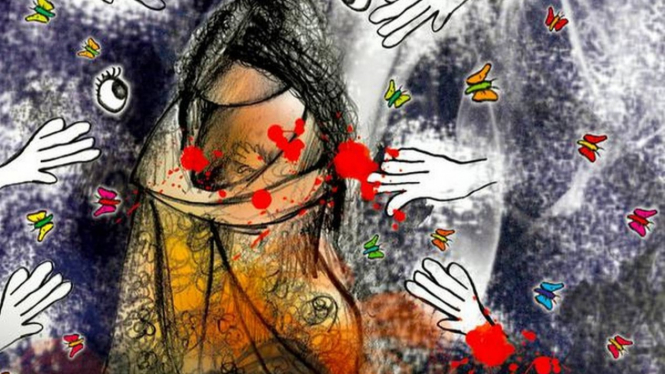Sexual Violences Laws Becomes New Progressive Breakthrough
- U-Report
VIVA – The Presidential Staff Office said that the Sexual Violence Crime Bill, which has been ratified into law, is a breakthrough in drafting progressive and non-partisan legislation.
Deputy V of the Presidential Chief of Staff, Jaleswari Pramodhawardani, described the participation model employed by the task force, coupled with strong communication with the House of Representatives, as a best practice, which can be replicated in future legislations.
Sejumlah perempuan memegang sebuah kertas bertuliskan Sahkan RUU Penghapusan Kekerasan Seksual beberapa waktu lalu
- ANTARA FOTO/Kornelis Kaha
After six years of discussions, the House of Representatives officially ratified the Sexual Violence Crime Bill, passing it into law during the 19th plenary session on Tuesday.
"The long road to the ratification of the Sexual Violence Crime Bill into law has been successfully (treaded), thanks to the collaboration with (every organ) of the nation, from the legislature, government, other state institutions, civil society, academics, and even the judiciary, all of whom are trying to (assist) Indonesia out of (the dangers) of sexual violence," she said.
The government has also lauded the House of Representatives and the general public who initiated and pushed for the passage of the Sexual Violence Crime Bill.
She informed that the process of drafting the Sexual Violence Crime Bill, which was originally called the Draft Law on the Elimination of Sexual Violence, had begun in 2016 and was pursued in 2021 by the Task Force for the Acceleration of the Formation of the Sexual Violence Crime Bill, which consisted of cross-ministerial or institutional elements.
There were 8 factions in the House of Representatives—the Indonesian Democratic Party of Struggle, the Party of Functional Groups, the Great Indonesia Movement Party, National Democratic Party, National Awakening Party, National Mandate Party, Democrats Party, and United Development Party—which approved the bill’s ratification.
The Prosperous Justice Party (PKS) faction was the only faction that was against the bill reaching level II discussions in a plenary meeting, given its wait for the ratification of the revised Criminal Code.
The Sexual Violence Crime Law consists of 8 chapters and 93 articles and includes 9 forms of sexual violence, ranging from non-physical sexual harassment, physical sexual harassment, forced contraception, forced sterilization, forced marriage, electronic-based sexual violence, sexual abuse, sexual exploitation, to sexual slavery.
The law also accommodates inputs from the coalition of the general public, such as the inclusion of a 'victim trust fund' mechanism.
The law also allows community-based service providers to contribute to the process of mentoring and protecting victims of sexual violence, perpetrators of sexual violence to approach victims from a certain distance and a certain time during the legal process, and regulates the rights of victims, victims' families, witnesses, experts, and companions to ensure the victim's rights are met.
However, the two initial proposals for rape and abortion have been excluded from the Sexual Violence Law because rape will be regulated in the Draft Criminal Code and abortion is already regulated in the Health Law. (ant)
























